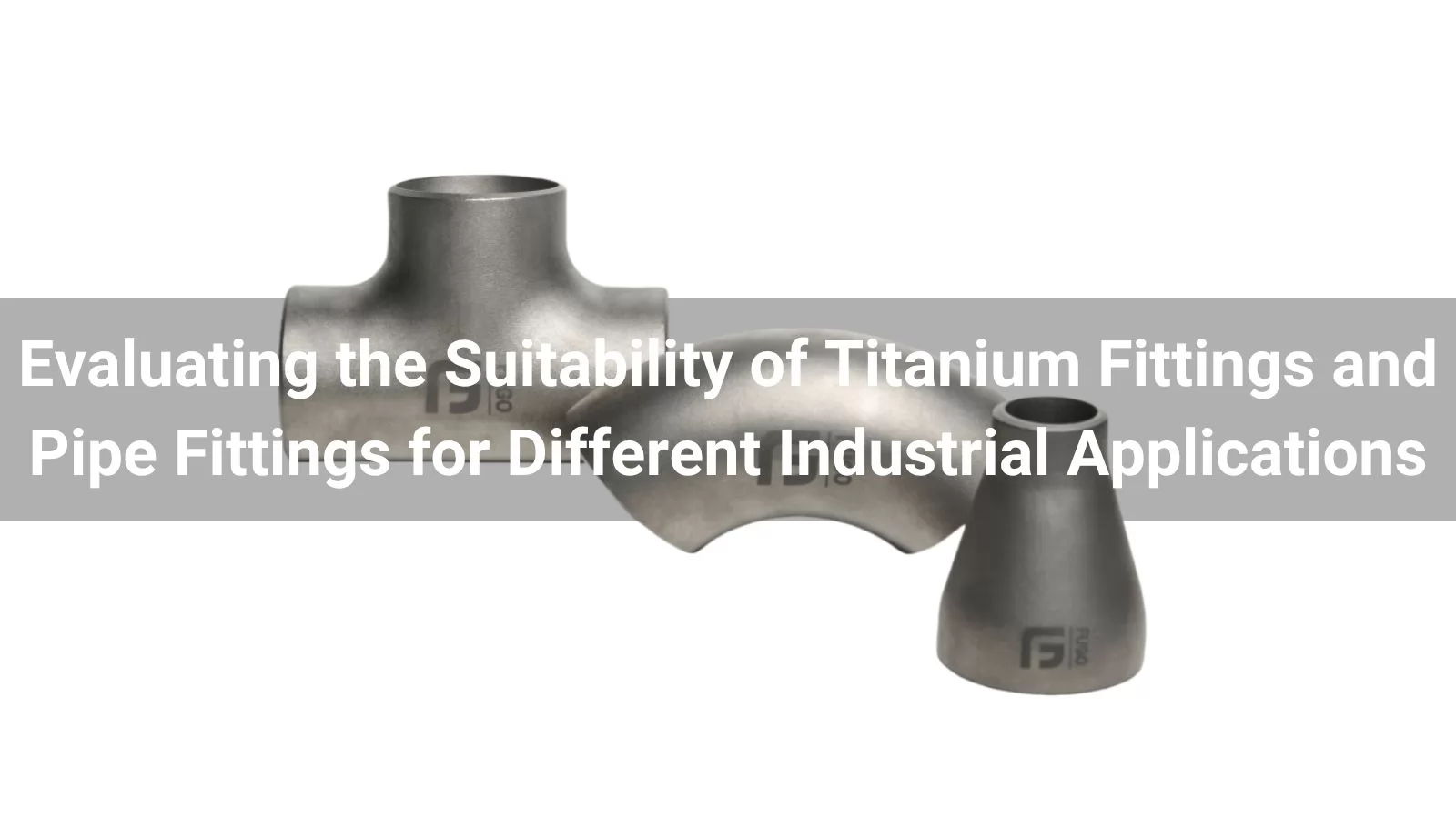


Titanium fittings and pipe fittings are critical components in many industrial systems, valued for their exceptional properties such as corrosion resistance, high strength-to-weight ratio, and durability under extreme conditions. This article evaluates the suitability of titanium fittings and pipe fittings for various industrial applications, including aerospace, chemical processing, oil and gas, marine, and power generation industries. By examining their material properties, advantages, limitations, and specific use cases, we aim to provide a comprehensive understanding of their applicability.
Titanium is a lightweight, strong, and highly corrosion-resistant metal, making it an ideal material for demanding industrial environments. Key properties of titanium fittings include:
l Corrosion Resistance: Titanium exhibits excellent resistance to corrosion, particularly in acidic, chloride-rich, and saline environments. It forms a passive oxide layer that protects against rust and degradation.
l High Strength-to-Weight Ratio: Titanium is as strong as many steels but approximately 40% lighter, making it suitable for applications where weight reduction is critical.
l Temperature Tolerance: Titanium maintains its mechanical properties across a wide temperature range, from cryogenic conditions to temperatures exceeding 600°C (1,112°F).
l Biocompatibility: Titanium is non-toxic and biocompatible, making it suitable for applications in medical and food processing industries.
l Fatigue Resistance: Titanium fittings have excellent fatigue resistance, ensuring long-term reliability in dynamic systems.
These properties make titanium fittings a preferred choice in industries requiring robust, long-lasting components. However, their high cost and manufacturing complexity must also be considered.
Titanium fittings are integral to the aerospace industry, used in hydraulic systems, fuel lines, and structural components of aircraft like the Boeing 787 and Airbus A350. Their high strength-to-weight ratio reduces aircraft weight, improving fuel efficiency, while their resistance to high temperatures and corrosive jet fuel ensures reliability in fuel and exhaust systems. However, the high cost of titanium can be a barrier for budget-constrained projects, and its hardness necessitates specialized machining tools, which may complicate manufacturing.
In the chemical processing industry, titanium pipe fittings are employed in reactors, heat exchangers, and piping systems handling aggressive chemicals, such as sulfuric and hydrochloric acids, as well as chlorides. Their corrosion resistance ensures longevity in harsh environments, and their biocompatibility makes them suitable for pharmaceutical fluid transfer systems, such as those used in chlorine production or acid storage tanks. The primary drawback is the higher initial cost compared to alternatives like stainless steel, which may be favored in less corrosive conditions.
The oil and gas sector utilizes titanium fittings in subsea pipelines, risers, and pressure vessels, particularly in corrosive offshore environments exposed to seawater and sour gas containing hydrogen sulfide. Titanium’s corrosion resistance and strength make it ideal for high-pressure systems like subsea flowlines and umbilical tubing in offshore rigs. However, its high cost often limits its use to critical components, with more cost-effective materials like stainless or carbon steel used in less demanding applications to reduce expenses.
Titanium fittings are widely used in the marine industry for shipbuilding and desalination plants, particularly in piping systems, heat exchangers, and propeller shafts. Their immunity to seawater corrosion and biofouling, combined with their lightweight properties, enhances performance in marine environments, as seen in desalination plant piping and submarine fittings. The high cost of titanium restricts its use to critical or high-value systems, with alternatives like copper-nickel alloys often chosen for less demanding applications.
In the power generation industry, especially in nuclear and geothermal facilities, titanium fittings are used in heat exchangers, condensers, and steam turbines. Their ability to resist corrosion in high-temperature water and steam, along with excellent fatigue resistance, ensures reliability in applications like condenser tubes in nuclear plants and geothermal fluid piping. The high upfront cost and fabrication challenges may limit titanium’s use to specific high-corrosion areas, with stainless steel or nickel alloys used in other parts to balance costs.
Titanium fittings outperform alternatives like stainless steel, carbon steel, and copper alloys in corrosive and high-strength applications. Stainless steel is cost-effective and corrosion-resistant but heavier and less chloride-resistant than titanium. Carbon steel is affordable and strong but prone to corrosion without protective measures. Copper alloys suit marine environments but lack titanium’s durability in extreme conditions. While titanium’s high cost is justified for demanding applications requiring corrosion resistance and weight savings, cheaper materials may suffice in less harsh environments.
Titanium fittings and pipe fittings are highly suitable for industrial applications requiring exceptional corrosion resistance, strength, and lightweight properties. They are particularly valuable in aerospace, chemical processing, oil and gas, marine, and power generation industries, where their performance justifies their high cost. However, for applications with less demanding conditions, alternatives like stainless steel or copper alloys may be more cost-effective. When selecting titanium fittings, engineers must weigh their benefits against cost, fabrication challenges, and system compatibility to ensure optimal performance and economic viability.
By understanding the specific requirements of each industrial application, stakeholders can make informed decisions about the use of titanium fittings, maximizing system reliability and longevity.
If you are looking for a reliable Chinese supplier, Contact us at Fugo Tech now!



Fugo Tech is focused on the manufacturing of clad metal plate and distributes the Stainless Steel, Titanium, Nickel Alloy, Zirconium and other non-ferrous metal pipes, fittings, flanges, and fasteners.